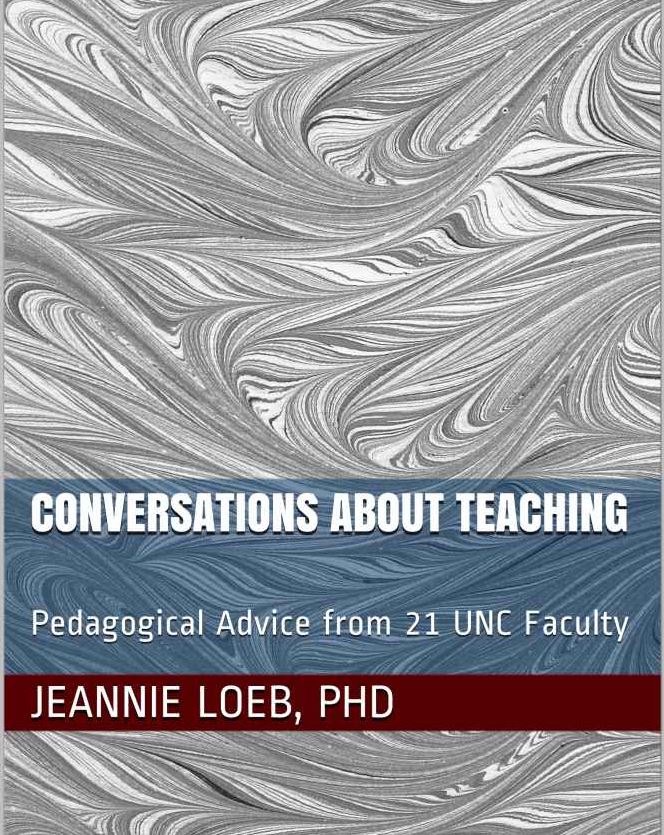Talking about Teaching
Who Am I?
I’m a full-time, non-tenure-track faculty member in an English Department at a large public university. Most of my teaching and all of my student advising takes place online, in our fully-online bachelor’s program in English Studies. For more about my background, see here.
What’s This Blog About?
One of the weirdest things about being a college professor is the lack of formal training in education that prospective faculty members receive. Teaching is a huge part of what we do, and yet our training is almost entirely in subject matter expertise rather than in educational theory and practice. As a graduate student in English literature, I took a single class in the pedagogy of rhetoric and composition, which was required before I joined the army of graduate students teaching first-year writing. I never took a single class about teaching literature or teaching college-level courses more generally, although that’s the bread-and-butter of what I do every single day.
Moreover, in the academic workplace there are few opportunities for deep engagement with other teachers about teaching. In my case, I am required to undergo a teaching evaluation each semester, in which my department chair or associate chair observes either one day of a face-to-face class or one week of an online class and writes a letter describing areas that are praiseworthy and areas for improvement. This professional assessment is always valuable and illuminating, and yet its evaluative nature means that it cannot be a truly spontaneous, informal conversation. My university also offers several teaching-oriented workshops each semester. I make an effort to attend these whenever possible, and I always come away feeling inspired.
In spite of these opportunities to evaluate and reflect on my teaching, I still feel there have been three things missing from my own growth as an instructor: explicit and ongoing connection with the field of education; frequent, informal conversations with others about teaching; and composition and expression of my own ideas and experiences about teaching.
To address the former, I’m pursuing a graduate certificate in Instructional Design with a focus on instructional technology. So far, my ID coursework has stimulated me to learn about learning in ways that are new to me. For me it’s been a revelation to read works about big-picture topics such as systematic design and theories of education, as well as specific pedagogical issues such as engagement, community formation, and media choice. I’m used to engaging with scholarship about obscure corners of 16th- and 17th-century English literature, but learning about these new-to-me fields of education and instructional design that have such direct bearing on my day-to-day work has been eye-opening.
To address the latter two imperatives - connections with the other teachers and deliberate reflection on my own teaching practices - that’s where this blog comes in. At first this will be a one-sided conversation, since there’s frankly no one (yet) who would have a reason or desire to listen to my ideas. Yet I hope that it won’t always be that way, and that perhaps these essays (using that term in the original sense of exploratory reflections) might lead to new opportunities for connection. I always appreciate hearing about the real-life challenges, successes, and processes of other teachers, and I hope that sharing some of those things myself might be fruitful for readers. Moreover, I hope that articulating my ideas in this space will clarify my thinking and help me to grow as a teacher.
Education blogger Michelle Pacansky-Brock recently observed that, for her, writing emerges from a place of vulnerability:
Convincing ourselves that what we have to say matters and is worthy of being considered can be difficult, especially if our identity intersects with one or more marginalized identities.
She asks, “Can you relate?” Yes, I can. I’m not sure that I do have anything to say about teaching that matters, but I’ve had a nagging feeling recently that I should take the important risk of trying.
So to you, hypothetical reader, what can you expect in this space in upcoming weeks? I will explore the theory and practice of teaching, in particular the intersection between my instructional design studies and my daily experiences as a teacher, both online and face-to-face. In the next few weeks, you’ll read about:
- How to acknowledge and reflect on teaching failures
- Why the “big syllabus” is a good thing
- A review of an influential new book about teaching
- Why “teachers” and “professors” are synonymous
If you’re reading this post, I invite you to subscribe in whatever service you use (I like Feedly!), and come along with me as I explore issues, resources, and questions pertinent to college teachers.
Works Cited
Pacansky-Brock, Michelle. “My Blog Story.” Michelle Pacansky-Brock, 3 January 2017, http://brocansky.com/2017/01/my-blog-story.html




